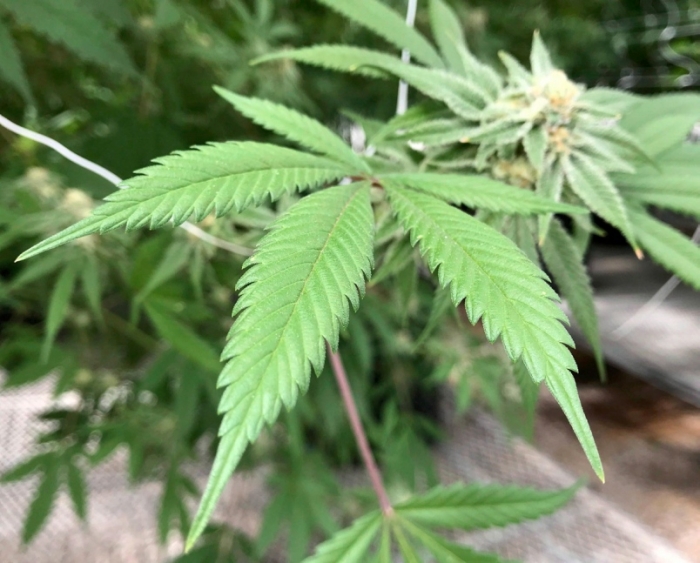Cannabis farming is still farming says B.C.

British Columbians are seeing the beginnings of a debate emerge in our province about the merits of cannabis cultivation on B.C.’s Agricultural Land Reserve, and a call to amend the current laws to bar cannabis producers from using the ALR.
The ALR was created to preserve arable farm land in B.C., and in 2015, the provincial government amended the ALR regulation to allow licensed medical-cannabis cultivation.
This was done after the Agricultural Land Commission concluded in 2014 that the production of licensed medical cannabis is consistent with the definition of “farm use” in the act. That means government thinks that cannabis farming is, in fact, farming and therefore just as suitable to cultivate the ALR as other farming operations.
Cannabis cultivation, both for medical and soon-to-be recreational consumption, is an important opportunity in ensuring B.C.’s most fertile agricultural lands continue to be used for agricultural purposes. Furthermore, facilitating the industry’s growth through access to the ALR can significantly contribute to the province’s economic-diversification efforts.
The intention behind the ALR is simply to ensure B.C.’s arable farmland is taken advantage of by farmers. Those who argue that cannabis cultivation should not fall into this category are suggesting that the types of farmers who have access to the ALR should be restricted, or that certain farmers should be given preferential access to these reserves because of the crops they choose to grow.
This would set a negative precedent for selective farming. If we discriminate against cannabis farming, what’s next? Excluding all farms that use greenhouses? Should farming really be limited to a narrow and defined view? We say no. We must allow farmers to choose what kind of crops they grow. Indeed, this was the original intention of the Agricultural Land Commission.
Farmland in the ALR represents only five per cent of B.C.’s land base — and contrary to what some might argue, it does not greatly affect food security in B.C. to have parcels of this land utilized by the cannabis industry. To that end, while many Canadians do grapple with food insecurity, it is not because of a lack of food supply within our province or country. And food security will certainly not be threatened because of cannabis cultivation occurring on fractions of the ALR.
When discussing a supply-related threat in this context, what should be considered is the impending demand shortages for recreational cannabis that Canada will see early in our newly legal regime. Under-supply is already a prominent concern for both industry and government; lack of legal product risks driving consumers back into the illicit market, diverting profits away from legal stakeholders and threatening one of government’s top priorities of legalization — eliminating the black market.
Restricting existing B.C. producers’ access to cultivation on the ALR would also have repercussions for these companies concerning their ability to compete in the broader cannabis industry and supply Canadian consumer demand.
Aside from this, there are significant economic benefits to allowing cannabis cultivation on the ALR for both farmers and the province. The cannabis industry can help revitalize struggling agricultural communities that should not be deprived of opportunity because of an unnecessarily narrow view of farming.
The ability to cultivate cannabis on the ALR can provide essential support and options to B.C. farmers who can add cannabis to their crop rotation, offsetting falling margins from traditional crops by creating opportunities for new revenue streams and higher returns.
Maintaining the industry’s access to the ALR also creates new economic activity and business opportunities throughout many of B.C.’s rural communities outside of the agricultural industry — a unique benefit that the cannabis industry brings due to its novelty and multitude of ancillary products and services.
And of course, by not restricting access to the ALR, the cannabis industry in B.C. will continue to generate new tax revenues for municipalities that can be used for government services such as parks, community amenities or other public infrastructure.
British Columbians should not let anti-legalization voices portray cannabis cultivation as anything other than an agricultural activity, and we can’t have good policies forcibly reversed by those who don’t like them. B.C. is already internationally renowned for its high-quality cannabis products (to the chagrin of some and the pride of others).
We need to embrace this opportunity to be a leader not just in Canada’s industry, but in the global marketplace. Let’s not squander it by thinking of cannabis as less legitimate than other agricultural crops.
420 Intel is Your Source for Marijuana News
420 Intel Canada is your leading news source for the Canadian cannabis industry. Get the latest updates on Canadian cannabis stocks and developments on how Canada continues to be a major player in the worldwide recreational and medical cannabis industry.
420 Intel Canada is the Canadian Industry news outlet that will keep you updated on how these Canadian developments in recreational and medical marijuana will impact the country and the world. Our commitment is to bring you the most important cannabis news stories from across Canada every day of the week.
Marijuana industry news is a constant endeavor with new developments each day. For marijuana news across the True North, 420 Intel Canada promises to bring you quality, Canadian, cannabis industry news.
You can get 420 Intel news delivered directly to your inbox by signing up for our daily marijuana news, ensuring you’re always kept up to date on the ever-changing cannabis industry. To stay even better informed about marijuana legalization news follow us on Twitter, Facebook and LinkedIn.




